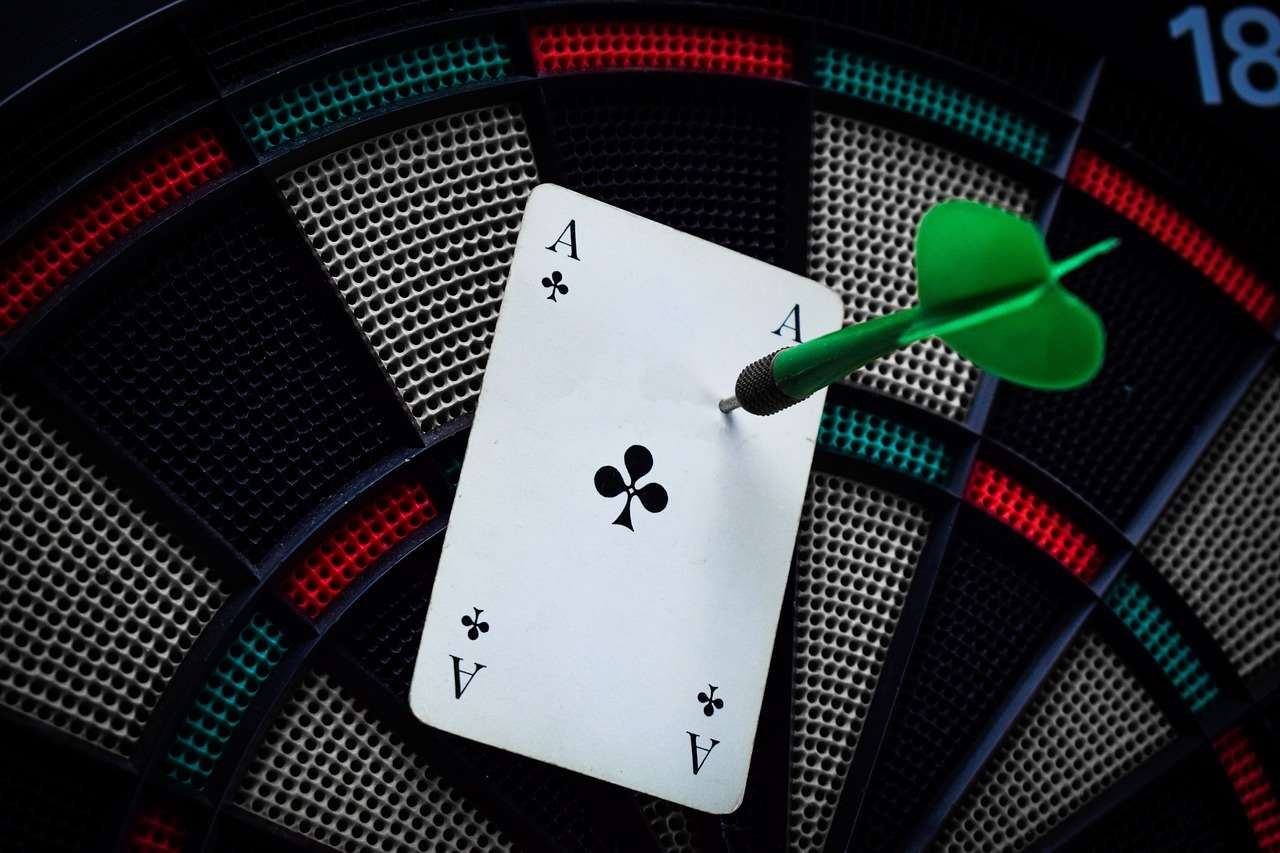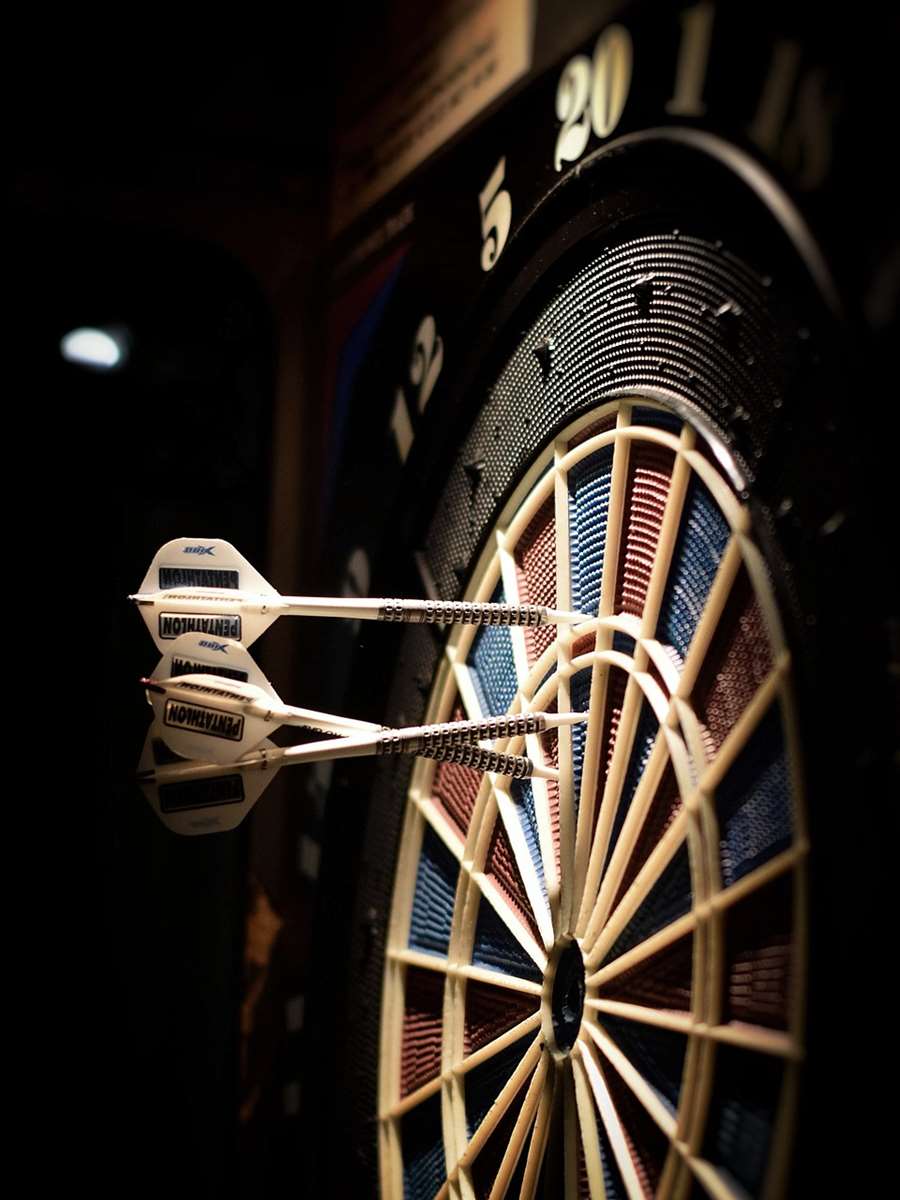Arguing with a referee or caller invariably leads to penalties, ranging from warnings to ejections, and understanding these consequences is crucial for maintaining sportsmanship and a fair playing environment. This article will delve into the various types of penalties for arguing with the referee or caller, explore the reasons behind these rules, and provide tips on how to handle disagreements constructively.
⚠️ Still Using Pen & Paper (or a Chalkboard)?! ⚠️
Step into the future! The Dart Counter App handles all the scoring, suggests checkouts, and tracks your stats automatically. It's easier than you think!
Try the Smart Dart Counter App FREE!Ready for an upgrade? Click above!
Understanding the Rationale Behind Penalties for Arguing
The implementation of penalties for arguing with the referee or caller isn’t arbitrary. These rules serve several critical functions within the sporting world. Firstly, they protect the integrity of the game by ensuring that officials can make decisions without undue pressure or intimidation. Imagine a scenario where every call is met with a barrage of complaints; the game would quickly devolve into chaos. Secondly, these rules promote sportsmanship and respect for authority. Teaching players to accept decisions, even when they disagree, is an essential part of character development. Finally, consistent application of rules fosters a more equitable playing field where everyone is held to the same standard of conduct. This leads to more consistent and predictable gameplay.

Protecting the Integrity of the Game
When officials are constantly challenged, their ability to make objective calls is compromised. The constant barrage of complaints can lead to hesitation, second-guessing, and ultimately, inconsistent officiating. By enforcing rules against arguing, we ensure that referees can focus on the game itself, rather than managing player dissent. This protection extends beyond just the immediate call; it also shields officials from long-term harassment and intimidation, allowing them to perform their duties without fear.
Promoting Sportsmanship and Respect
Sportsmanship is a fundamental value in athletics. It teaches players to accept both victory and defeat with grace. Arguing with officials sets a poor example for younger players and undermines the spirit of fair play. By penalizing such behavior, we reinforce the importance of respect for authority and the rules of the game. This extends to respecting opponents as well; maintaining composure and avoiding confrontations contributes to a positive atmosphere on the field or court.
Ensuring a Fair Playing Field
Consistent application of rules is paramount to ensuring a level playing field for all participants. If some players are allowed to argue with impunity while others are penalized, the game becomes inherently unfair. By consistently enforcing penalties for arguing with the referee or caller, we create a system where everyone is held accountable for their actions, regardless of their skill level or position on the team. This fosters a sense of justice and equality, leading to a more enjoyable and competitive experience for everyone involved. If you are looking for a simple alternative sport with easy to understand rules, check out Basic Darts Fundamentals for Beginners.
Types of Penalties for Arguing with the Referee or Caller
The specific penalties for arguing with the referee or caller can vary widely depending on the sport, the league, and the severity of the offense. However, some common types of penalties include warnings, technical fouls, yellow cards, ejections, fines, and suspensions. Understanding the escalation of these penalties is crucial for players and coaches to avoid crossing the line. This can affect your team’s strategy when Modifying rules for mixed-level dart players as well.

- Warnings: Often the first step in addressing argumentative behavior, a warning serves as a notice that the player’s conduct is unacceptable and needs to cease immediately.
- Technical Fouls: Common in basketball, a technical foul results in a point being awarded to the opposing team and possession of the ball. Repeated technical fouls can lead to ejection.
- Yellow Cards: Used in soccer and other sports, a yellow card is a formal caution. Accumulating multiple yellow cards often results in a suspension from the next game.
- Ejections (Red Cards): An ejection removes a player from the game immediately. The player may also face further disciplinary action, such as a suspension.
- Fines: Professional leagues often impose monetary fines for egregious displays of disrespect towards officials. These fines can be substantial and serve as a deterrent.
- Suspensions: Suspensions prevent a player from participating in future games. The length of the suspension can vary depending on the severity of the offense and the league’s rules.
Escalation of Penalties
Most leagues follow a progressive disciplinary approach. A minor infraction might result in a warning, while repeated or more serious offenses lead to harsher penalties. For example, a player might receive a warning for their initial outburst, followed by a technical foul for continued dissent, and ultimately an ejection for using abusive language. This escalation is designed to give players an opportunity to correct their behavior before facing more severe consequences.
Factors Influencing the Severity of Penalties
Several factors can influence the severity of penalties for arguing with the referee or caller. These factors include the nature of the argument, the language used, the player’s history of disciplinary action, and the overall context of the game. A calm discussion about a call is viewed differently from a profanity-laced tirade. Similarly, a player with a clean record might receive a lighter penalty than a repeat offender.

- Nature of the Argument: Was the player simply seeking clarification on a call, or were they aggressively challenging the official’s authority?
- Language Used: Did the player use respectful language, or did they resort to profanity, insults, or threats? The use of abusive language almost always results in a harsher penalty.
- Player’s Disciplinary History: A player with a history of arguing with officials is more likely to receive a severe penalty for a subsequent offense.
- Context of the Game: The intensity of the game and the importance of the call can sometimes influence the official’s decision. However, this should not excuse disrespectful behavior.
Constructive Ways to Handle Disagreements with Officials
While it’s natural to feel frustrated or disagree with a call, there are constructive ways to address the situation without incurring penalties for arguing with the referee or caller. These strategies include choosing your words carefully, approaching the official calmly and respectfully, focusing on the specific call rather than making personal attacks, and utilizing the appropriate channels for appealing a decision. The ability to control your emotions and communicate effectively is a valuable skill both on and off the field.
Choosing Your Words Carefully
Think before you speak. Avoid using accusatory language or raising your voice. Frame your questions or concerns in a respectful and objective manner. For instance, instead of saying “That was a terrible call!”, try “Could you explain why you made that call?”.
Approaching the Official Calmly and Respectfully
Your body language and tone of voice are just as important as your words. Approach the official calmly and maintain a respectful demeanor. Avoid aggressive postures, such as pointing fingers or getting too close to the official’s personal space. Sometimes it also helps to know adapting darts rules for beginners and see how officials make calls there, as well.

Focusing on the Specific Call
Avoid making personal attacks or questioning the official’s integrity. Focus on the specific call in question and explain why you believe it was incorrect. Provide specific details and evidence to support your argument. For example, “I believe the player was inside the line when they made the shot” is more effective than “You always miss those calls!”.
Utilizing Appropriate Channels for Appealing a Decision
Many leagues have established procedures for appealing a referee’s decision. This might involve speaking to a coach or team captain, who can then address the issue with the officials. In some cases, there may be a formal appeal process that allows for a review of the call. Utilizing these channels demonstrates respect for the system and avoids direct confrontation with the official.
Consequences Beyond the Game: The Impact on Reputation and Future Opportunities
The consequences of arguing with officials can extend beyond the immediate game or season. A reputation for poor sportsmanship can damage a player’s or coach’s career prospects, affecting opportunities for scholarships, professional contracts, and coaching positions. Maintaining a positive image and demonstrating respect for authority are crucial for long-term success in athletics. Learning How to make darts fairer with handicap rules can also help you understand the importance of positive sporting conduct.
Impact on Reputation
A reputation for arguing with officials can precede you. Coaches, scouts, and recruiters often consider a player’s character and attitude as much as their athletic ability. A player known for their outbursts and disrespect may be passed over for opportunities, even if they are highly skilled. Similarly, a coach who constantly berates officials may struggle to find employment or gain the respect of their players.
Impact on Future Opportunities
Colleges and professional teams often conduct background checks on potential recruits and hires. A history of disciplinary action for arguing with officials can raise red flags and negatively impact their chances of being selected. Furthermore, such behavior can jeopardize endorsements, sponsorships, and other opportunities that rely on a positive public image.

The Role of Coaches and Team Leaders
Coaches and team leaders play a vital role in shaping the attitudes and behaviors of their players. They have a responsibility to promote sportsmanship, respect for authority, and constructive communication with officials. By setting a positive example and teaching players how to handle disagreements appropriately, coaches can create a culture of respect and accountability within their teams. These leaders can also use some of these tips when creative dart rules for parties and social gatherings come into play.
Setting a Positive Example
Coaches should model the behavior they expect from their players. This means treating officials with respect, even when they disagree with a call. A coach who constantly argues with officials sends a message to their players that such behavior is acceptable.
Teaching Players How to Communicate Effectively
Coaches should teach players how to express their concerns to officials in a calm and respectful manner. They should also provide guidance on the appropriate channels for appealing a decision.
Creating a Culture of Respect and Accountability
Coaches should establish clear expectations for player conduct and hold them accountable for their actions. This includes enforcing team rules against arguing with officials and recognizing players who demonstrate exemplary sportsmanship.
Conclusion
Understanding the penalties for arguing with the referee or caller, and more importantly, the rationale behind them, is crucial for fostering a positive and fair sporting environment. From warnings to ejections and beyond, the consequences can significantly impact a game and an individual’s reputation. By prioritizing respectful communication, emotional control, and adherence to established procedures, players, coaches, and team leaders can contribute to a more sportsmanlike and enjoyable experience for everyone involved. Implement these strategies today and help cultivate a culture of respect on and off the field. Now that you have mastered this important sportsmanship skill, why not learn some fun dart game variations with modified rules?
Hi, I’m Dieter, and I created Dartcounter (Dartcounterapp.com). My motivation wasn’t being a darts expert – quite the opposite! When I first started playing, I loved the game but found keeping accurate scores and tracking stats difficult and distracting.
I figured I couldn’t be the only one struggling with this. So, I decided to build a solution: an easy-to-use application that everyone, no matter their experience level, could use to manage scoring effortlessly.
My goal for Dartcounter was simple: let the app handle the numbers – the scoring, the averages, the stats, even checkout suggestions – so players could focus purely on their throw and enjoying the game. It began as a way to solve my own beginner’s problem, and I’m thrilled it has grown into a helpful tool for the wider darts community.